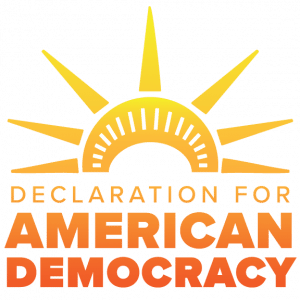This Week in 200 Words
In state updates, a court ruled that North Carolina’s gerrymandered congressional map is illegal. Georgia will purge around 300,000 voters from its system. Several Pennsylvania counties have come out against extending Pennsylvania’s voter registration deadline. California is training its poll workers to combat discrimination of transgender voters. The fate of thousands of formerly incarcerated individuals’ voting rights in Kentucky could be determined in its next gubernatorial race.
In other news, three election security bills were again blocked by Republican Senators. The Minnesota Secretary of State is being sued by the ACLU to restore voting rights to formerly incarcerated individuals. At least twenty billionaires were part of a dark money group that denounced President Obama. Lastly, Vice President Biden’s campaign has decided to accept contributions from Super PACs.
National News
The Hill: Senate GOP blocks three election security bills for second day
Senate Republicans blocked three election security bills on Wednesday, marking the second time in as many days they’ve stymied legislation. Sens. Mark Warner (D-Va.), Amy Klobuchar (D-Minn.) and Ron Wyden (D-Ore.) asked for unanimous consent to pass three election-related bills. But they were blocked by Sen. Marsha Blackburn (R-Tenn.), who noted that the unsuccessful attempt was the latest by Democrats to pass election security bills in the Senate ahead of 2020.
Alpha News MN: ACLU Sues Minnesota Secretary of State to Restore Felon Voting Rights
The American Civil Liberties Union filed a lawsuit Monday against Minnesota Secretary of State Steve Simon in an effort to restore the right to vote to convicted felons who have been released from prison. Minnesota is currently one of 22 states that revokes voting rights for felons during incarceration and for any period of parole or probation. A number of other states restore voting rights immediately upon release from prison, while felons in Maine and Vermont never lose the right to vote.
The New York Times: The Student Vote Is Surging. So Are Efforts to Suppress It.
At Austin Community College, civics is an unwritten part of the curriculum — so much so that for years the school has tapped its own funds to set up temporary early-voting sites on nine of its 11 campuses. No more, however. This spring, the Texas Legislature outlawed polling places that did not stay open for the entire 12-day early-voting period. When the state’s elections take place in three weeks, those nine sites — which logged many of the nearly 14,000 ballots that full-time students cast last year — will be shuttered. So will six campus polling places at colleges in Fort Worth, two in Brownsville, on the Mexico border, and other polling places at schools statewide.
Law & Crime: ‘We Need a Fundamental Change’: Advocates Renew Push for Overturning Citizens United Via 28th Amendment
A non-profit advocacy organization dedicated to overturning the controversial Citizens United decision launched a college-based campaign to do exactly that earlier this week. American Promise kicked off “The Cause of Our Time” at the third annual National Citizen Leadership Conference–the largest national event dedicated to the passage of a 28th Amendment keyed toward revoking the exceedingly unpopular Supreme Court precedent.
Forbes: At Least 20 Billionaires Behind ‘Dark Money’ Group That Opposed Obama
A nonprofit group with a bland name, Americans for Job Security, spent $5 million supporting Republicans in the 2010 midterms and $15 million denouncing former President Obama in the 2012 election, but until this week, the group never had to file disclosures showing where its money was coming from. “This is the first time in the Citizens United-era that a dark money group was forced to disclose their donors in a certain time period,” said Jordan Libowitz, a spokesperson for nonprofit watchdog group Citizens for Responsibility and Ethics in Washington, referring to the 2010 Supreme Court case that wiped away previous restrictions on political spending.
ProPublica: The Market for Voting Machines Is Broken. This Company Has Thrived in It.
In the glare of the hotly contested 2018 elections, things did not go ideally for ES&S, the nation’s largest manufacturer of voting technology. In Georgia, where the race for governor had drawn national interest amid concerns about election integrity, ES&S-owned technology was in use when more than 150,000 voters inexplicably did not cast a vote for lieutenant governor. In part because the aged ES&S-managed machines did not produce paper backups, it wasn’t clear whether mechanical or human errors were to blame. Litigation surrounding the vote endures to this day.
TPM: Voting Rights Must Be A Priority In 2020 Race
Heading into the 2020 elections, Democrats need to place an emphasis on pro-democracy reforms that cement the right to vote. And if they are able to win back the White House and the Senate, the party must be prepared to take advantage of their progressive majority and pass these policies immediately. Reformers have recently made significant headway on the state level to shore up voting rights, pushing back on efforts to make it harder to cast ballots. Automatic voter registration, for instance, has spread to 16 states and Washington, D.C. just since 2015. And over the past nine years, nine states enacted laws allowing sixteen or seventeen-year-olds to pre-register to vote and twelve states and Washington, D.C. have adopted same-day registration.
The New York Times: Biden Campaign Drops Opposition to Super PAC Support
Joseph R. Biden Jr.’s campaign effectively dropped its longstanding opposition to receiving the assistance of super PACs on Thursday, opening the door for wealthy supporters to spend unlimited amounts of money to try and lift him in the Democratic primary.The move represents a stark reversal and an implicit acknowledgment of his weakened position in the contest. He entered October with only $9 million in the bank, a fraction of his leading rivals.
Slate: You Can Now Hear Elena Kagan Read Her Searing Dissent in the Partisan Gerrymandering Case
“For the first time ever,” Justice Elena Kagan declared on June 27, “this court refuses to remedy a constitutional violation because it thinks the task beyond judicial capabilities.”
Kagan was reading a summary of her dissent in Rucho v. Common Cause, a 5–4 decision that barred federal courts from hearing partisan gerrymandering claims. Chief Justice John Roberts had just wrapped up his majority opinion, delivered during the dramatic last session of the term. Justices rarely read dissents from the bench, and typically reserve the practice for decisions that they view to be catastrophically misguided. Now, for the first time, you can hear her deliver her historic dissent. Slate obtained the recording from the National Archives. It is deeply compelling and, for the stoic justice, remarkably impassioned. At first, her voice is filled with righteous fury, but it soon shifts into profound sorrow as she nears the end.
State Updates
North Carolina- Reuters: North Carolina’s congressional map is illegal Republican gerrymander, court rules
A North Carolina court on Monday temporarily blocked the state from using its congressional map in next year’s elections and strongly suggested it would eventually rule the districts were illegally gerrymandered to favor Republicans. The decision was a victory for Democrats, who have struggled to gain a foothold in both the state legislature and North Carolina’s 13 U.S. congressional districts, in part because of how Republicans drew the electoral lines.
Georgia- Atlanta Journal Constitution: Purge of about 300,000 voter registrations planned in Georgia
About 330,000 voter registrations in Georgia could soon be canceled because registrants haven’t participated in elections for several years. The purge comes after Georgia canceled 534,119 registrations in July 2017, the largest single removal of voters in U.S. history. Under a new state law, election officials will notify voters before canceling their registrations, a step that didn’t exist two years ago.
Pennsylvania- The Philadelphia Inquirer: Extending Pennsylvania’s voter registration deadline in 2020 could disenfranchise people, election officials warn
Elections officials in a variety of Pennsylvania counties are warning that a proposed change to voter registration deadlines — a measure meant to increase political participation — would add significantly to their pre-election workloads, potentially causing confusion for voters at the polls and unintentionally disenfranchising people in 2020.
California- NewNowNext: California Is Training Poll Workers to Curb Trans Voter Suppression in 2020
Poll workers across California will be getting an education in the next 130 days on gender identity and pronouns. That’s the time between now and the presidential primary for the 2020 election.
On Friday, California Secretary of State Alex Padilla announced a statewide plan to educate polling workers on transgender issues in an effort to combat voter suppression. “Every eligible voter has a right to cast a ballot free from any unnecessary burdens or intimidation,” said Padilla in a statement. “Elections officials have a duty to facilitate the participation of all eligible voters.”
Kentucky- The Messenger: Governor’s race may decide if 100,000-plus regain right to vote
Every fall, when campaign signs would crop up on green lawns in her small Kentucky town, a young Chandra Justice would listen to her Republican father and Democratic mother discuss which candidates would get their vote. Voting, Justice quickly learned, mattered. It’s why Justice makes a point to talk to her own 12-year-old son about the importance of voting. She hasn’t told him yet that she can’t do it herself.

